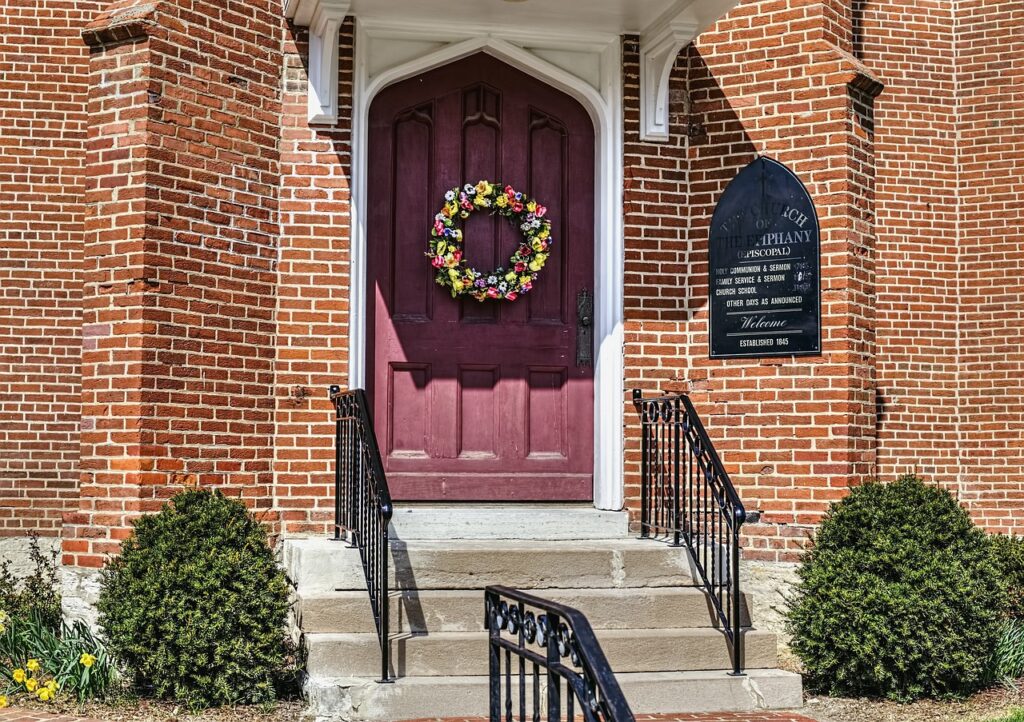- Methodist colleges and universities in the US offer diverse educational opportunities and environments, ranging from liberal arts colleges to research universities. These institutions emphasize the importance of education in unlocking career opportunities and personal growth.
Methodist Colleges in the US
- Southern Methodist University (SMU)
- Location: Dallas, Texas
- Description: SMU is a private research university affiliated with the United Methodist Church. It offers a wide range of undergraduate and graduate programs in areas such as business, engineering, humanities, arts, and sciences.
- Website: https://www.smu.edu/
- Drew University
- Location: Madison, New Jersey
- Description: Drew University is a liberal arts university with Methodist roots. It offers programs in the arts, sciences, and theological studies, emphasizing a strong commitment to social justice.
- Website: https://drew.edu/
- Emory University
- Location: Atlanta, Georgia
- Description: Emory University is a prestigious research university affiliated with the United Methodist Church. It offers a broad array of undergraduate, graduate, and professional programs in various fields, including business, health sciences, and liberal arts.
- Website: https://www.emory.edu/home/index.html
- High Point University
- Location: High Point, North Carolina
- Description: High Point University is a private liberal arts institution with Methodist ties. It offers programs in areas such as business, education, and health sciences, with a focus on experiential learning and character development.
- Website: https://www.highpoint.edu/
- Methodist University
- Location: Fayetteville, North Carolina
- Description: Methodist University is a private university affiliated with the United Methodist Church. It offers a range of undergraduate and graduate programs in fields such as business, healthcare, and the arts.
- Website: https://www.methodist.edu/
- Randolph-Macon College
- Location: Ashland, Virginia
- Description: Randolph-Macon College is a liberal arts college with Methodist affiliations. It provides programs in the arts, sciences, and humanities, emphasizing critical thinking and research.
- Website: https://www.rmc.edu/
- Baker University
- Location: Baldwin City, Kansas
- Description: Baker University is a small, private university affiliated with the United Methodist Church. It offers a variety of undergraduate and graduate programs in areas such as education, business, and the sciences.
- Website: https://www.rmc.edu/
- Nebraska Wesleyan University
- Location: Lincoln, Nebraska
- Description: Nebraska Wesleyan University is a private liberal arts institution with Methodist connections. It provides programs in areas like education, nursing, and the arts, focusing on a well-rounded education.
- Website: https://www.nebrwesleyan.edu/
- Centenary College of Louisiana
- Location: Shreveport, Louisiana
- Description: Centenary College of Louisiana is a private, Methodist-affiliated college. It offers undergraduate programs in fields like liberal arts, sciences, and business.
- Website: https://www.centenary.edu/
- Hendrix College
- Location: Conway, Arkansas
- Description: Hendrix College is a private liberal arts college with a United Methodist heritage. It provides a wide range of undergraduate programs in arts, sciences, and humanities, emphasizing critical thinking and social responsibility.
- Website: https://www.hendrix.edu/
Please note that the specific programs and characteristics of these schools may change over time, so it’s essential to visit their official websites or contact them directly for the most up-to-date information.

Types of Methodist Colleges and Universities
Methodist colleges and universities in the US offer a diverse range of educational environments to cater to a variety of student needs and interests. These institutions can be broadly categorized into the following types:
Liberal arts colleges focus on providing a well-rounded education in humanities, social sciences, and natural sciences. These colleges often emphasize small class sizes and personalized attention from faculty members.
Research universities are institutions that prioritize scientific and technological advancements, conducting cutting-edge research alongside offering undergraduate and graduate degree programs.
Historically black colleges and universities (HBCUs) have a long-standing tradition of promoting cultural and racial equality within the Methodist church. Many of these institutions were established to provide education opportunities for African Americans during segregation.
Medical schools affiliated with Methodist colleges and universities offer specialized programs in various medical disciplines, preparing students for careers in healthcare.
Online Methodist colleges cater to the needs of adult learners and non-traditional students by offering flexible and accessible educational options, including online degree programs and courses.
Each type of Methodist institution provides its unique set of opportunities and resources, allowing students to choose the educational environment that best aligns with their career goals and aspirations.
Prominent Methodist Colleges and Universities
Among the diverse range of Methodist colleges and universities in the US, several institutions stand out for their academic excellence, strong reputations, and commitment to providing quality education. Some of these prominent Methodist colleges and universities include:
Emory University in Atlanta, Georgia, is a top-ranked research university known for its strong programs in healthcare, law, and business. Emory is also home to the Candler School of Theology, one of the 13 official seminaries of the United Methodist Church.
Duke University in Durham, North Carolina, is a prestigious research university with a world-renowned medical center and a commitment to interdisciplinary education. The university also houses the Duke Divinity School, which offers graduate programs in theology and ministerial studies.
Southern Methodist University in Dallas, Texas, offers a wide range of undergraduate and graduate programs, with a particular focus on business, engineering, and the arts. The university is known for its beautiful campus, strong alumni network, and commitment to research and community service.
Boston University in Boston, Massachusetts, is a large, private research university with a diverse student body and a wide array of academic programs. The university is home to the Boston University School of Theology, the oldest Methodist seminary in the US.
American University in Washington, D.C., is a private research university with a strong focus on international relations, public policy, and the arts. The university is known for its commitment to social justice and its location in the nation’s capital, which provides students with unique opportunities for internships and networking.
Millsaps College in Jackson, Mississippi, is a small liberal arts college with a strong emphasis on community service and social justice. It is consistently ranked among the top liberal arts colleges in the US.
Willamette University in Salem, Oregon, is a private liberal arts college known for its strong commitment to sustainability, social justice, and experiential learning.
Claflin University in Orangeburg, South Carolina, is a historically black university and a leader in promoting diversity and equality within the Methodist educational community. Claflin offers a range of undergraduate and graduate programs and is known for its strong emphasis on research and community engagement.
These prominent Methodist colleges and universities exemplify the diverse educational opportunities available to students seeking a quality education grounded in Methodist values.

Pros and Cons of Attending a Methodist College
As with any educational institution, attending a Methodist college or university comes with its own set of advantages and disadvantages. The following are some of the pros and cons of enrolling in a Methodist institution:
Pros:
- Rigorous modern curricula: Methodist colleges and universities are known for their high academic standards and up-to-date curricula, ensuring that students receive a quality education.
- Emphasis on community outreach and service: Many Methodist institutions prioritize community engagement and service-learning opportunities, providing students with valuable real-world experience and fostering a commitment to social responsibility.
- Promotion of cultural and racial equality: Methodist colleges and universities, including historically black colleges and universities (HBCUs), have a history of promoting diversity and inclusivity within their communities.
- Financial aid opportunities for Methodist students: Many Methodist institutions offer scholarships and financial aid specifically for students who are members of the Methodist church, easing the burden of tuition costs.
Cons:
- Surrounding Christian environment may not suit all students: While students are not required to be Methodist or Christian, those who are not may feel less comfortable in an environment where Christian values and traditions are prevalent.
- Limited number of Methodist colleges compared to other religious affiliations: Although there is a diverse range of Methodist institutions, the overall number of Methodist colleges and universities is smaller compared to institutions affiliated with other religious organizations.
When considering attending a Methodist college or university, it is essential to weigh the pros and cons to determine if the institution aligns with your personal values, educational goals, and career aspirations.
Enrollment in Methodist Colleges
Enrolling in a Methodist college or university involves several considerations and processes, including international student recruitment, scholarships and financial aid opportunities, and admissions requirements. Each of these factors plays a role in ensuring a smooth enrollment experience for prospective students.
International student recruitment and support: Methodist colleges and universities welcome students from diverse backgrounds and actively recruit international students. Many institutions have dedicated departments or offices focused on supporting the unique needs of international students, including assistance with visa applications, language support, and cultural adaptation.
Scholarships and financial aid opportunities for Methodist students: Many Methodist institutions offer financial assistance to eligible students, including scholarships, grants, and loans. Some financial aid options may be specifically tailored to students who are members of the Methodist church, while others may be available to all students based on academic merit, financial need, or other criteria.
Admissions process and requirements: The admissions process at Methodist colleges and universities typically involves submitting an application, along with accompanying documents such as transcripts, letters of recommendation, and standardized test scores. Some institutions may also require an essay or personal statement, as well as an interview. Admissions requirements can vary between institutions, so it is essential for prospective students to thoroughly research the specific requirements of the colleges and universities they are considering.
By understanding the enrollment process and requirements, prospective students can better prepare themselves for a successful educational experience at a Methodist college or university.

Methodist College Programs and Degrees Offered
Methodist colleges and universities in the US provide a wide array of academic programs and degrees, catering to the diverse needs and interests of their students. The following are some of the common types of programs and unique initiatives offered at Methodist institutions:
Undergraduate programs: Methodist colleges and universities offer a variety of undergraduate programs across various fields, such as liberal arts, sciences, business, and engineering. These programs typically lead to a bachelor’s degree upon completion.
Graduate programs: Many Methodist institutions also offer graduate programs, including master’s and doctoral degrees, in a range of disciplines. These programs often involve advanced coursework and research, preparing students for careers in academia, industry, or other professional fields.
Online degree programs: For adult learners and non-traditional students seeking flexibility in their education, some Methodist colleges and universities offer online degree programs. These programs allow students to complete their coursework and earn a degree remotely, making education more accessible for those with work or family commitments.
Unique programs and initiatives: In addition to traditional degree programs, Methodist institutions may also offer unique programs and initiatives that align with their values and mission. These could include community service opportunities, study abroad programs, interdisciplinary programs, and initiatives that promote social justice, sustainability, or other important causes.
With a wide variety of programs and degrees offered, Methodist colleges and universities cater to the diverse educational needs and interests of their students, helping them achieve their academic and career goals.
Career Opportunities for Graduates of Methodist Colleges and Universities
Graduates of Methodist colleges and universities have access to a wealth of career opportunities across various industries, thanks in part to their strong academic foundation, alumni networks, and the guidance offered by resources like Pathways to Advancement.
Strong alumni networks: Many Methodist institutions boast robust alumni networks that provide graduates with valuable connections, networking opportunities, and potential job leads. These networks can also offer mentorship and support to recent graduates as they navigate the job market and establish their careers.
Opportunities in various industries, including STEM and Marketing: Methodist colleges and universities offer diverse academic programs that prepare students for careers in a wide range of industries, from science, technology, engineering, and mathematics (STEM) fields to marketing, business, and the arts.
Unlock Your Future at a Methodist College
Throughout this exploration of Methodist colleges and universities in the US, we’ve highlighted the benefits and opportunities these institutions offer. From diverse academic programs and degrees to unique initiatives that align with Methodist values, these institutions provide students with a well-rounded education and a strong foundation for their careers. By considering the pros and cons of attending a Methodist college, prospective students can make informed decisions about which institution best aligns with their goals and aspirations. As you embark on your educational journey, remember that resources like Pathways to Advancement are available to help guide you in making informed choices. With their focus on providing guidance and support to adult learners and non-traditional students, Pathways to Advancement can be an invaluable partner in unlocking your career potential. To explore more about education and career planning, visit Pathways to Advancement today.
